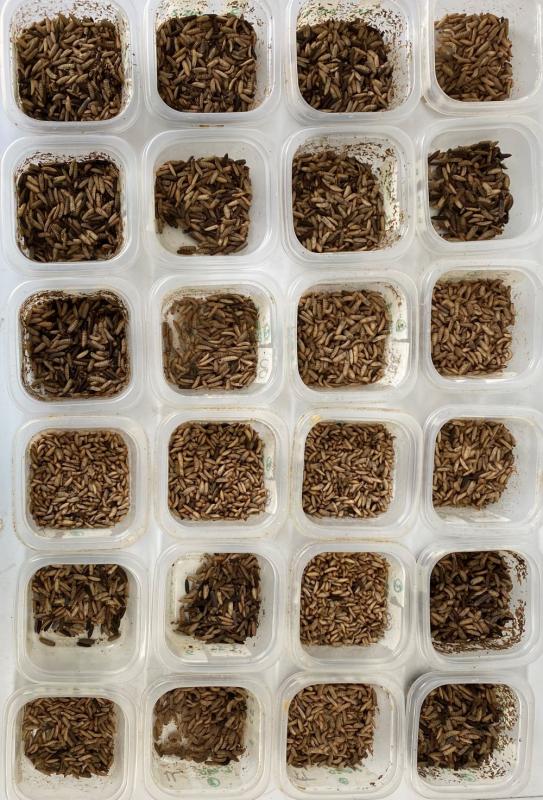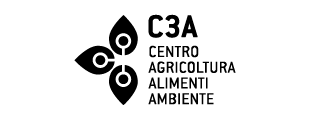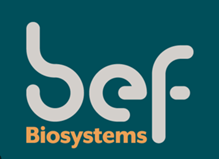Project in brief
 The insect-rearing sector, intended for food and feed production, is projected to grow in the coming years. Despite this, there is a lack of knowledge about evaluating the insects' welfare and developing management guidelines for them during rearing. With a specific focus on black soldier fly larvae (BSF), this project aims to decline to the insect’s features, the 5 Freedoms of Brambell’s report, already in use for well-being evaluation in traditionally farmed animals. The study of the best rearing parameters in terms of quality and quantity of diet, as well as rearing density, will be the focus of the project, evaluating insects’ performances (final weight, growth rate, substrate reduction, survival rate), as well as their chemical composition.
The insect-rearing sector, intended for food and feed production, is projected to grow in the coming years. Despite this, there is a lack of knowledge about evaluating the insects' welfare and developing management guidelines for them during rearing. With a specific focus on black soldier fly larvae (BSF), this project aims to decline to the insect’s features, the 5 Freedoms of Brambell’s report, already in use for well-being evaluation in traditionally farmed animals. The study of the best rearing parameters in terms of quality and quantity of diet, as well as rearing density, will be the focus of the project, evaluating insects’ performances (final weight, growth rate, substrate reduction, survival rate), as well as their chemical composition.
Project objectives
- Define the optimal dietary regime, feeding rate, and density for larvae rearing.
- Optimise the BSF rearing process, exploiting agri-food by-products as rearing substrate for the insects.
- Create scientific knowledge for insect-rearing management from a welfare perspective.
Impact
The outcomes of the project BEFWelSust hold an impact on the future development of the insect sector, involving several stakeholders such as insect-rearing companies, agri-food producers, and manufacturers of various machinery and equipment. This project is in line with the priority launched in 2021 by the IPIFF (International Platform for Insect as Food and Feed), who state that “Brambell’s 5 degrees of freedom constitute a good basis for the establishment of good welfare practices in insects” (IPIFF, 2021), and exploring the use of new substrates as feed for insects is a goal for the next few years (IPIFF, 2022).
Funding
This project has received funding from the C3A (Centre Agricultural, Food Environment), and from the company “BEF Biosystems”.
Team
- Sihem Dabbou
- Marco Meneguz
- Arianna Cattaneo


